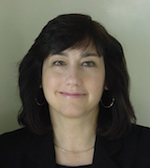
Twelve years later and not much has changed. Not much. Not really.
Starting with the entrance. He knocks twice, opens the door and hurriedly strides into the examining room. His energy speaks volumes (Places to go; patients to see. So many patients; so little time. ). I am sitting there, a veteran oncology patient, waiting patiently, a salmon-colored cotton robe wrapped around my upper half.
As always, we begin by shaking hands. It’s our ritual. Then it’s my turn to smile and recite my opening line: so how’s my favorite oncologist?
Your only oncologist, to the best of my knowledge, Dr. C replies, correcting me, referencing our running gag about his legendary attention to detail. But you’ll get no complaint from me about that particular personality trait of his. An oncologist who’s a bit obsessive is a good thing, don’t you think?
Any lumps, bumps or bruises? Dr. C asks, moving briskly into Act One: The Physical Exam. I lay flat on my back. He modestly opens the gown, uncovering one side at a time, keeping the opposite side hidden, and presses the tips of his fingers in a circular pattern. Then he says the word I’ve been patiently waiting for (perfect) as he finishes with the left side and moves around the table to begin his exam of the right. Twelve years of exams later and like an addict hungry for a fix, I gobble up the word (perfect), swallow it whole, relishing the sweet taste and warm feelings washing over me as it goes down the hatch.
But honestly, is this ironic, or what? After all, there might be a short list of politically (and clinically) correct terms that could be used to describe my post-treatment upper body (altered? revised? reconstructed?) But perfect? Hardly. Does this doctor who deals with so many breast cancer survivors know the impact of his word choice? Or is “perfect” the word an oncologist uses with his patients to let them know that there’s no sign of disease? No, I think to myself. That can’t be right. There must be another term. I’ve heard it before and I try to remember what that word is.
The exam comes to a predictable conclusion with banter about our personal lives and some acquaintances we have in common and that’s when I suddenly remember the word that I have been trying to think of. Absolutely perfect timing…
So, tell me, Alysa, Dr. C asks, overall, how was your year?
I’m ready with the perfect answer.
Unremarkable, I say, 2010 was unremarkable. And I see the doctor cock his head with interest. I have never used this term in our conversations before. Over the years, he has, of course. To describe my CAT scans, bloodwork and Breast MRI results. To report that everything is normal, that there is nothing out of the ordinary. Unremarkable year, I repeat. No surgeries. Absolutely nothing invasive. I’m hoping that 2011 turns out to be another unremarkable year.
Read on to discover another cancer survivor’s impressions of life after treatment ends.
Excerpted from The Summer of Her Baldness by Catherine Lord (University of Texas, 2004)

There is a membrane that separates the world of illness from the world of health and I am having trouble negotiating it.
I can with no trouble at all slip into the world where I am not a breast cancer survivor unless I choose to be, unless I say something as a matter of ethics or politics, unless I wear a pink ribbon, which I don’t, unless I choose to make it an issue…People no longer say that I look fabulous, they say that I look good…a woman who has been slashed and poisoned and burned and reemerged not at middle age but at the beginnings of old. My hair is entirely gray. My hands show age spots and my veins are ropy and the flesh underneath my chin sags. It doesn’t matter that women tell me I look like a teenager or that my students say with relief, I was scared last spring when you got sick but now you look GREAT. Suddenly I can see myself, especially when caught in unfamiliar mirrors, in the body of my mother and of her mother: same thick hair, gray and wavy, same bulk in the shoulders and chest, same forward list.
When I am not obliged to be is a woman who had a bad mammogram exactly a year ago and who has four years to go before her chances of a recurrence decline to the point where she can take a deep breath because the offending breast will have achieved statistical normality.
I can stand precisely at the edge of the membrane, so that if I tilt my head fractionally to one side I can see illness and if I tip my head to the other side I can see the world where people do not think of illness. Just as you can play under waterfalls that come off a smooth sheet of rock, moving from one side of the water to the other, standing inside and looking out to the sun, then standing outside and looking through to darkness and rock, I can move my body back and forth across the membrane and when I do I cannot help but smile because it is a delirium to be able to see both sides.